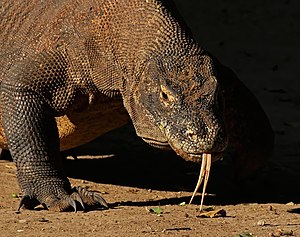Wikipedia:Wikipedia Signpost/2016-05-17/In the media
Wikimedia's Dario Taraborelli quoted on Google's Knowledge Graph in The Washington Post
In The Washington Post, resident digital culture critic Caitlin Dewey surmises (May 11) that the Post's readers "probably haven't even noticed Google's sketchy quest to control the world's knowledge":
Google's "knowledge panels" materialize at random, as unsourced and absolute as if handed down by God:
Betty White is 94 years old.
The Honda Civic is 2016’s best car.
Taipei is the capital of—ahem—the "small island nation" of Taiwan.
The problem, Dewey argues, is that the information snippets arrive on Google users' screens without any indication of their source, yet by their placement gain an unearned air of authority. She quotes the Wikimedia Foundation's Dario Taraborelli in support of her thesis:
... to skeptics, of whom there are a growing number, it's a looming public literacy threat—one that arguably dwarfs the recent revelations that Facebook's trending topics are curated by humans.
"It undermines people's ability to verify information and, ultimately, to develop well-informed opinions," said Dario Taraborelli, head of research at the Wikimedia Foundation and a social computing researcher who studies knowledge production online. "And that is something I think we really need to study and process as a society."
For Taraborelli, the primary issue with Google's knowledge panels is that they aren't terribly knowledgeable: They provide information but often leave out any context on where that information came from. That makes it difficult for readers to evaluate the accuracy of the statement or whether it's the best and most complete of the available options.
Google's knowledge panels regularly, if inadvertently, make rather important decisions for us: Taiwan, you'll remember, is described as if it were an independent nation, when only 22 countries actually recognize it as such. Meanwhile, Google corrects searches for "Londonderry," Ireland's fourth-largest city, to "Derry," the (unofficial) term favored by Irish nationalists.
Since Google frequently does not cite its sources—a ploy, Taraborelli says, to make it seem more authoritative—there's no way for users to double-check "answers" for bias or error, which doubtlessly exist.
Dewey's article ends with a hopeful reference to Wikidata, described as
an open-license, machine-readable knowledge base that will both source all of its statements and accommodate conflicting sources. The hope is that Google will begin pulling from that database and citing its sources, instead of dumbing down Wikipedia.
It's a fond hope. Bearing in mind that Wikidata is published under a no-attribution-required CC-0 licence and itself lacks sources for many of its statements, it seems quite possible that many other commercial re-users will jump at the opportunity to use Wikidata content without attribution in order to follow Google's lead and build their own aura of omniscience, replicating and broadening the problem Dewey and Taraborelli lament.
- Editor retention study: In a guest blog post on Scientific American, Sarah Guminski wonders "What makes Wikipedia's volunteer editors volunteer?" Apparently, it's all about community: in an experiment run on the German-language Wikipedia, researchers found that giving new contributors an award during their first month of participation increased retention by 20 per cent. The "symbolic recognition ... made editors feel like they were part of an exclusive group ... the key takeaway is not how to attract volunteers, but how to keep them." (May 12)
- Wikipedia remains popular: The Atlantic finds that "Wikipedia remains the most popular informational site around." (May 11)
- Nigerian vandals: igberetvnews.com and nigeriannewspapers.today write about vandalism to the biography of Muhammadu Buhari. The article was semi-protected on May 11 after a spate of vandalism edits. (May 11)
- Unloved picture: Seventeen.com chronicles Ansel Elgort's Twitter-based efforts to have his Wikipedia image changed. So far, Elgort seems to have been unsuccessful. (May 10)
- Death and taxes: Death and Taxes looks at edits to the biography of Tim Moore (North Carolina politician). (May 5)
- Popular reptiles: ScienceDaily, Australian Network News, home.bt.com and others report on a study by Oxford University and Tel Aviv University to identify the world's most popular reptiles, ranked according to page views on the English Wikipedia. The Komodo dragon came top, followed by the black mamba and the saltwater crocodile. (May 4–5)
- Celebrity deaths: Gizmodo UK relies on Wikipedia to establish that 2016 is truly a "bizarrely bad year for celebrity deaths", in a piece also picked up by The Daily Mail. (May 4)






Discuss this story